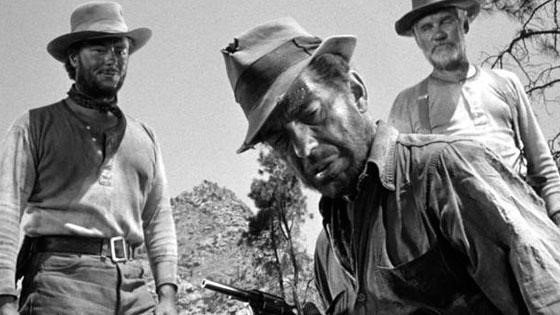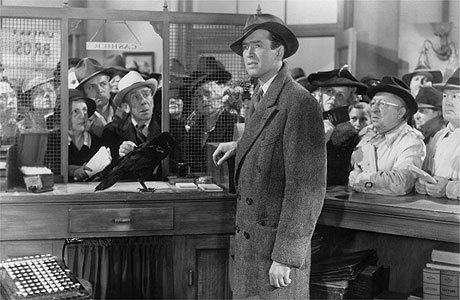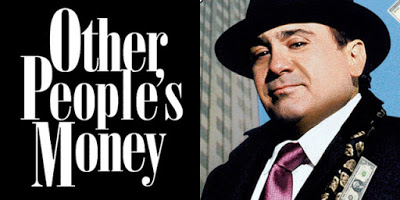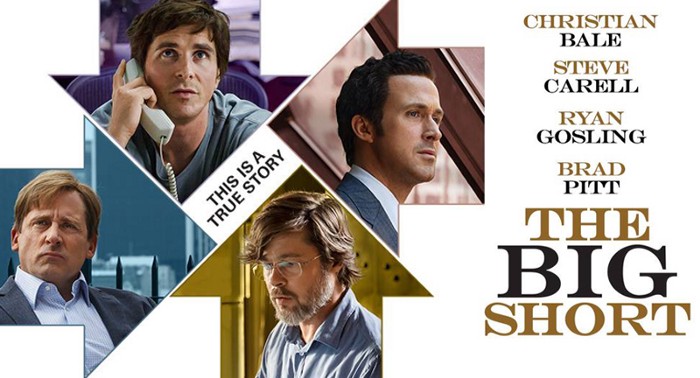Syllabus
Note: It goes without saying that this syllabus is subject to change based on changes in University policies during the semester.
About the Course
Economics is a way of looking at the world — a lens, you might say. Economists see economic phenomena, and economic lessons, everywhere. So it shouldn’t be surprising that motion pictures are full of economic phenomena and economic ideas. This course will use movies as a way to introduce you to some of the basic concepts in economics and to evaluate critically how those concepts are embodied in specific movies. By the end of the course, you should have a good sense of what economics is and how economists think about the world. There may even be lessons for your own life along the way. After you’ve spent some time in the course, you may decide you really like Economics and want to take more of it — maybe even to major or minor in Economics. Students usually start out by taking Economics 1201 (microeconomics) and 1202 (macroeconomics), which are the prerequisites for upper-division courses in the major and also fulfill requirements in the Business School and elsewhere. Alternatively, you can take Econ 1200, which is a four-credit course that covers much the same material as 1201 and 1202 (both macro and micro) in a single semester. Econ 1200 fulfills all the same requirements as taking both ECON 1201 and 1202. For more information about Economics as major (or minor), click here.
Course Format and Requirements
We will watch 11 movies over the course of the semester. Each movie will raise a set of specific economic issues and illustrate specific economic concepts.
Here’s how it will work: Each class will consist of a lecture/discussion of the previous week’s movie, followed by a showing of a new movie. Under normal circumstances, I would show the movies in the classroom. But this year it makes more sense for you to watch the movies in private. I will explain in class how you will have access to the movies.
No watching parties, please!
Over the course of the semester, you will write six short reaction papers of two or three pages (double spaced) each in response to a prompt about a movie. I have randomly broken the class into two groups, so you will be assigned a movie to write about roughly every two weeks. This means you will write a paper about six of the 11 movies – but be sure to watch and think about all the movies. This is a course about how movies use and illustrate economic ideas, not a course about literary criticism or cinema as an art form; but you are welcome to think about the literary and cultural aspects of the movies in your papers, at least so long as you also talk about economics. This is not a W course, so you will not be graded on the writing per se — but part of what you will be graded on is the argument you make and how well you make it. You might want to look at my Notes on Writing and the resources there. You will upload your papers in the assignments area of the “My Groups” link of HuskyCT. They will be due just before the start of the class during which we discuss the movie you will have written about. The papers will be worth eight points each, amounting to 48 per cent of your grade.
The rest of your grade will be based on two multiple-choice exams. The first will take place in class on Wednesday, October 21. The second will be the final exam, which will be available online at the official final exam time assigned by the Registrar. (If the University decides to end in-person classes before October 21, the midterm will be online as well.) The midterm will cover material through the movie 42: the Jackie Robinson Story. The final will be cumulative, but will stress the material after the midterm. The exams will test your knowledge of the economic concepts we talk about in class, not just of the content of the movies. The midterm will be worth 25 per cent of your grade and the final 27 per cent.
You will take the online final exam (and the midterm too if it has to go online) using Lockdown Browser in HuskyCT. This is a stable platform designed specifically for taking tests. You will need to install the LockDown Browser software on the computer that you will be using the take the tests. Please read the following carefully.
- Go to the “Student Help” tab in HuskyCT to
- watch a video about using LockDown Browser;
- access the PDF help file that is available;
- download the software you need to install.
Here is the quick-start guide.
- To take a test, start LockDown Browser on your computer, log into HuskyCT, and navigate to the exam. The test title will indicate that it requires LockDown Browser. Please note: any test requiring LockDown Browser cannot be taken using a regular browser. You will be directed to close your current browser and open LockDown Browser.
- When taking an online exam, follow these guidelines:
- Turn off all mobile devices, phones, etc.
- Clear your desk of all external materials — books, papers, other computers, or devices.
- Remain at your desk or workstation for the duration of the test.
LockDown Browser will prevent you from accessing other websites or applications; you will be unable to exit the test until all questions are completed and submitted.
- For assistance, contact UITS — HuskyTech (860-486-4357 (HELP), HelpCenter@uconn.edu.
Course Materials
There is no textbook for the course, but I have asked the bookstore to order Naked Economics: Undressing the Dismal Science, 3rd Edition, by Charles Wheelan. It is available cheaply on kindle. This is a breezy overview of basic ideas in economics. I will not refer to it (much) in class, but you should plan to read it as early in the course as you can, as it will help you understand the economics behind the movies. There may be a few questions on the exams that refer to this book. For each movie the syllabus links to short videos that go over important concepts and substitute for a textbook. There are also readings of various kinds, from articles in the New York Times to professional journal articles in economics to original writings by major historical figures, including Adam Smith, Louis Brandeis, and John Maynard Keynes. I don’t expect you to master the more difficult readings, and you won’t be tested on them. But I do expect you to look at them and grapple with them.
Course Grading Summary
Six reaction papers 48%
Midterm Exam 25%
Final Exam 27%
|
Grade |
Letter Grade |
GPA |
|
93-100 |
A |
4.0 |
|
90-92 |
A- |
3.7 |
|
87-89 |
B+ |
3.3 |
|
83-86 |
B |
3.0 |
|
80-82 |
B- |
2.7 |
|
77-79 |
C+ |
2.3 |
|
73-76 |
C |
2.0 |
|
70-72 |
C- |
1.7 |
|
67-69 |
D+ |
1.3 |
|
63-66 |
D |
1.0 |
|
60-62 |
D- |
0.7 |
|
<60 |
F |
0.0 |
Course Calendar
September 2
Introduction to the course and to economics.

Screening: The Treasure of the Sierra Madre (1948).
Concepts:
- Rationality versus “greed.”
- Institutions: trust.
- Institutions: property rights.
- Institutions: violence as dispute resolution.
- Productive vs. unproductive rent seeking.
Materials:
- Video: The Importance of Institutions.
- Robert Whaples, “Ten Economic Lessons from the Treasure of the Sierra Madre,” The Independent Review 18(3): 441-452 (Winter 2014).
- Andrea G. McDowell, “From Commons to Claims: Property Rights in the California Gold Rush,” Yale Journal of Law & Humanities 14(1): 1-72 (2002).
September 9
Discuss The Treasure of the Sierra Madre (1948).

Screening: Dirty Pretty Things (2002).
Concepts:
- Gains from trade.
- Opportunity cost.
- Institutions: Illegal markets.
- “Repugnant” transactions.
- Economics of Immigration.
Materials:
- Video: The Big Ideas of Trade.
- Video: What Is Opportunity Cost?
- Video: Gains from Trade.
- Video: Should You Be Allowed to Buy or Sell Your Kidney?
- Video: Bryan Caplan on Open Borders.
- Philip J. Cook and Kimberly D. Krawiec, “If We Pay Football Players, Why Not Kidney Donors?” Regulation, Spring 2018, pp. 12-17.
- Henry Hansmann, “The Economics and Ethics of Markets for Human Organs,” Journal of Health Politics, Policy, and Law 14(1): 57-85 (October 1989).
- Jason Brennan and Peter Jaworski, Markets without Limits. New York: Routledge, 2015.
September 16
Discuss Dirty Pretty Things (2002).

Screening: The Hudsucker Proxy (1994).
Concepts:
- Supply and demand.
- Demand shifters: information and tastes.
- Entrepreneurship and innovation — 1950s corporate edition.
Materials:
- Video: The Demand Curve
- Video: Demand, Part 1
- Video: Demand, Part 2
- Video: Demand Curve Shifts
- Douglas Martin, “Richard Knerr, 82, Craze Creator, Dies,” The New York Times, January 18, 2008.
September 23
Discuss The Hudsucker Proxy (1994).

Screening: The Founder (2016).
Concepts:
- Entrepreneurship.
- Innovation: the reverse Schumpeterian hypothesis.
- Costs and production technology.
- The division of labor.
Materials:
- Video: Burgers and the Division of Labor
- Willy Staley, “22 Hours in Balthazar,” The New York Times Magazine, October 17, 2013.
- Adam Smith, The Wealth of Nations (1776), Book I, Chapters I-III.
- Axel Leijonhufvud, “Capitalism and the Factory System,” in R. N. Langlois, ed., Economic as a Process: Essays in the New Institutional Economics. New York: Cambridge University Press, 1986.
September 30
Discuss The Founder (1994).

Screening: Moneyball (2011).
Concepts:
- Competition.
- Profit maximization.
- Marginal product of labor.
- Measurement costs.
Materials:
- Video: The Marginal Product of Labor.
- Video: The labor market.
- J.C. Bradbury, “A Sports Economist’s Thoughts on Moneyball,” Freakonomics Blog, September 26, 2011.
October 7
Discuss Moneyball (2011).

Screening: 42 (2013).
Concepts:
- Markets and discrimination.
Materials:
- Video: The Marginal Product of Labor.
- Video: The labor market. (View from 15:00.)
- Kevin J. Murphy, “How Gary Becker Saw the Scourge of Discrimination,” Chicago Booth Review, June 15, 2015.
- Christopher J. Coyne, Justin P. Isaacs, and Jeremy T. Schwartz, “Entrepreneurship and the Taste for Discrimination,” Journal of Evolutionary Economics 20: 609–627 (2010).
October 14
Discuss 42 (2013).

Screening: The Wizard of Oz (1939).
Concepts:
- What is money?
- The quantity theory of money.
- Inflation, deflation, and hyperinflation.
- The gold standard.
Materials:
- Video: What Is Money?
- Video: Quantity Theory of Money
- Video: Causes of Inflation
- Video: Inflation, Deflation, Hyperinflation
- Hugh Rockoff, “The ‘Wizard of Oz’ as a Monetary Allegory,” The Journal of Political Economy 98(4): 739-760 (August 1990).
- “U.S. Economy Grinds to Halt as Nation Realizes Money Just a Symbolic, Mutually Shared Illusion,” The Onion, February 16, 2010.
- Amy B Wang, “‘They’ll Kill for It’: Ramen Has Become the Black-market Currency in American Prisons,” The Washington Post, August 23, 2016.
October 21
Midterm exam (through 42: the Jackie Robinson Story).
October 28
Discuss The Wizard of Oz (1939).

Screening: It’s a Wonderful Life (1946).
Concepts:
- Financial intermediation.
- Fractional-reserve banking.
- Trust and expectations.
- The Great Depression.
Materials:
- Video: What Do Banks Do?
- Video: Fractional-Reserve Banking
- Video: Four Reasons Financial Intermediaries Fail
- Video: The Great Depression
- Sebastián Fleitas, Price Fishback, and Kenneth Snowden, “Forbearance by Contract: How Building and Loans Mitigated the Mortgage Crisis of the 1930s,” Working Paper 21786, National Bureau of Economic Research (December 2015). This is a wonky but not-too-technical discussion of the kind of institution in the movie — a Building and Loan, not an ordinary commercial bank.
November 4
Discuss It’s a Wonderful Life (1946).

Screening: Other People’s Money (1991).
Concepts:
- Debt (bonds and loans) versus equity (stocks).
- Corporate governance.
- The market for corporate control.
Materials:
- Video: Intro to Stock Markets
- Video: Financial Markets.
- Henry Hansmann, “Ownership of the Firm,” Journal of Law, Economics, and Organization 4(2): 267-304 (Fall 1988).
- Louis D. Brandeis, Other People’s Money. New York: Frederick A. Stokes, 1914.
- Michael C. Jensen, “Takeovers: Folklore and Science,” Harvard Business Review, November-December, 1984.
November 11
Discuss Other People’s Money (1991).

Screening: The Big Short (2015).
Concepts:
- Financial markets and securities.
- Bubbles vs. market fundamentals.
- Short selling.
- 2008 financial crisis.
Materials:
- Video: Speculation
- Video: The Great Recession.
- Video: Free Investment advice
- Video: Raghuram Rajan on the causes of the financial crisis.
November 18
Discuss The Big Short (2015).

Screening: Wall-E (2015).
Part I: The environment.
Concepts:
- Externalities.
- The Tragedy of the Commons.
- Institutions and environmental protection.
Materials:
- Video: The Tragedy of the Commons
- Video: Externalities, Incentives, and Institutions.
- Video: Public Goods and Common Resources.
- Jake Halpern, “The Big Business of Scavenging in Postindustrial America,” The New York Times Magazine, August 21, 2019.
- Antón Chamberlin and Walter E. Block, “Review: Wall-E,” Cosmos + Taxis 6(6+7): 68-72 (2019).
- Steven Pinker, Enlightenment Now: the Case for Reason, Science, Humanism, and Progress. New York: Penguin, 2018, Chapter 10: the Environment.
- Economists’ Statement on Carbon Dividends.
- David Leonhardt, “The Problem With Putting a Price on the End of the World,” The New York Times Magazine, April 9, 2019.
Part II: Economic growth and automation.
Concepts:
- Economic Growth.
- Automation and technological unemployment.
Materials:
- Video: The Hockey Stick of Human Prosperity.
- Video: Economic Growth
- Video: “Farewell, Etaoin Shrdlu.”
- Video: Will Machines Take Our Jobs?
- John Maynard Keynes, “Economic Possibilities for our Grandchildren” (1930), in Essays in Persuasion. New York: Harcourt Brace, 1932, pp. 358-373 .
- Richard N. Langlois, “Cognitive Comparative Advantage and the Organization of Work,” Journal of Economic Psychology 24: 187-207 (2003).
December 2
Discuss Wall-E (2015). Note: this class will take place online in Blackboard Collaborate.
Summary and overview of what we’ve learned.
Office Hours |
My office hours are Wednesdays 2:00 to 4:00 or by appointment. I am also around other times, and I can usually talk for a while after class. Office hours will take place in the class’s Blackboard Collaborate room — the same place you will watch the movies. Best to email me to set up a time to talk.
Talk to me if you have any problems or questions about the class. Also feel free to talk to me about other things, including economics or academics generally.
Mask and Social Distancing Expectations |
To ensure a safe learning environment for everyone, masks/face coverings must be worn at all times when in the classroom. If a student is not wearing a mask/face covering, they will be asked by the instructor to put one on immediately or leave the classroom. Repeatedly failing to follow this expectation will result in a referral to Community Standards. If an instructor is not wearing a mask/face covering, students should feel comfortable asking the instructor to put one on immediately. More information about proper usage of masks is available from UConn Environmental Health and Safety at this link.
Additionally, we will observe 6 feet of physical distancing in the classroom at all times. Please make sure to sit only in chairs or desks that are marked with a green circle and checkmark, and do not rearrange furniture or stickers. The University has arranged classrooms and seating to maintain physical distancing. Using these visual cues will help keep us all safe.
Activities that involve temporarily removing the mask, such as eating or drinking are not allowed. Please leave the classroom for such activities.
Resources for Students Experiencing Distress |
The University of Connecticut is committed to supporting students in their mental health, their psychological and social well-being, and their connection to their academic experience and overall wellness. The university believes that academic, personal, and professional development can flourish only when each member of our community is assured equitable access to mental health services. The university aims to make access to mental health attainable while fostering a community reflecting equity and diversity and understands that good mental health may lead to personal and professional growth, greater self-awareness, increased social engagement, enhanced academic success, and campus and community involvement.
Students who feel they may benefit from speaking with a mental health professional can find support and resources through the Student Health and Wellness-Mental Health (SHaW-MH) office. Through SHaW-MH, students can make an appointment with a mental health professional and engage in confidential conversations or seek recommendations or referrals for any mental health or psychological concern.
Mental health services are included as part of the university’s student health insurance plan and also partially funded through university fees. If you do not have UConn’s student health insurance plan, most major insurance plans are also accepted. Students can visit the Student Health and Wellness-Mental Health located in Storrs on the main campus in the Arjona Building, 4th Floor, or contact the office at (860) 486-4705 or https://studenthealth.uconn.edu/ for services or questions.
The Center for Students with Disabilities (CSD) at UConn provides accommodations and services for qualified students with disabilities. If you have a documented disability for which you wish to request academic accommodations and have not contacted the CSD, please do so as soon as possible. The CSD is located in Wilbur Cross, Room 204 and can be reached at (860) 486-2020 or at csd@uconn.edu. Detailed information regarding the accommodations process is also available on their website at www.csd.uconn.edu.
Student Responsibilities and Resources |
As a member of the University of Connecticut student community, you are held to certain standards and academic policies. In addition, there are numerous resources available to help you succeed in your academic work. This section provides a brief overview to important standards, policies and resources.
Student Code
You are responsible for acting in accordance with the University of Connecticut’s Student Code Review and become familiar with these expectations. In particular, make sure you have read the section that applies to you on Academic Integrity:
- Academic Integrity in Undergraduate Education and Research
- Academic Integrity in Graduate Education and Research
Cheating and plagiarism are taken very seriously at the University of Connecticut. As a student, it is your responsibility to avoid plagiarism. If you need more information about the subject of plagiarism, use the following resources:
- University of Connecticut Libraries’ Student Instruction (includes research, citing and writing resources)
Copyright
Copyrighted materials within the course are only for the use of students enrolled in the course for purposes associated with this course and may not be retained or further disseminated.
Netiquette and Communication
At all times, course communication with fellow students and the instructor are to be professional and courteous. It is expected that you proofread all your written communication, including discussion posts, assignment submissions, and mail messages. If you are new to online learning or need a netiquette refresher, please look at this guide titled, The Core Rules of Netiquette.
Adding or Dropping a Course
You must officially drop a course to avoid receiving an “F” on your permanent transcript. Simply discontinuing class or informing the instructor you want to drop does not constitute an official drop of the course. For more information, refer to the Undergraduate Catalog. Matriculated students should add or drop a course through the Student Administration System.
Academic Calendar
The University’s Academic Calendar contains important semester dates.
Academic Support Resources
Technology and Academic Help provides a guide to technical and academic assistance.
Policy against Discrimination, Harassment and Inappropriate Romantic Relationships
The University is committed to maintaining an environment free of discrimination or discriminatory harassment directed toward any person or group within its community – students, employees, or visitors. Academic and professional excellence can flourish only when each member of our community is assured an atmosphere of mutual respect. All members of the University community are responsible for the maintenance of an academic and work environment in which people are free to learn and work without fear of discrimination or discriminatory harassment. In addition, inappropriate Romantic relationships can undermine the University’s mission when those in positions of authority abuse or appear to abuse their authority. To that end, and in accordance with federal and state law, the University prohibits discrimination and discriminatory harassment, as well as inappropriate Romantic relationships, and such behavior will be met with appropriate disciplinary action, up to and including dismissal from the University. Refer to the Policy against Discrimination, Harassment and Inappropriate Romantic Relationships for more information.
Policy Against Discrimination, Harassment and Related Interpersonal Violence
The University is committed to maintaining an environment free of discrimination or discriminatory harassment directed toward any person or group within its community – students, employees, or visitors. Academic and professional excellence can flourish only when each member of our community is assured an atmosphere of mutual respect. All members of the University community are responsible for the maintenance of an academic and work environment in which people are free to learn and work without fear of discrimination or discriminatory harassment. In addition, inappropriate amorous relationships can undermine the University’s mission when those in positions of authority abuse or appear to abuse their authority. To that end, and in accordance with federal and state law, the University prohibits discrimination and discriminatory harassment, as well as inappropriate amorous relationships, and such behavior will be met with appropriate disciplinary action, up to and including dismissal from the University. Additionally, to protect the campus community, all non-confidential University employees (including faculty) are required to report sexual assaults, intimate partner violence, and/or stalking involving a student that they witness or are told about to the Office of Institutional Equity. The University takes all reports with the utmost seriousness. Please be aware that while the information you provide will remain private, it will not be confidential and will be shared with University officials who can help.
Statement on Absences from Class Because of Religious Observances and Extra-Curricular Activities
Faculty and instructors are strongly encouraged to make reasonable accommodations in response to student requests to complete work missed by absence resulting from religious observances or participation in extra-curricular activities that enrich their experience, support their scholarly development, and benefit the university community. Examples include participation in scholarly presentations, performing arts, and intercollegiate sports, when the participation is at the request of, or coordinated by, a University official. Such accommodations should be made in ways that do not dilute or preclude the requirements or learning outcomes for the course. Students anticipating such a conflict should inform their instructor in writing within the first three weeks of the semester, and prior to the anticipated absence, and should take the initiative to work out with the instructor a schedule for making up missed work. For conflicts with final examinations, students should contact the Office of the Dean of Students.
